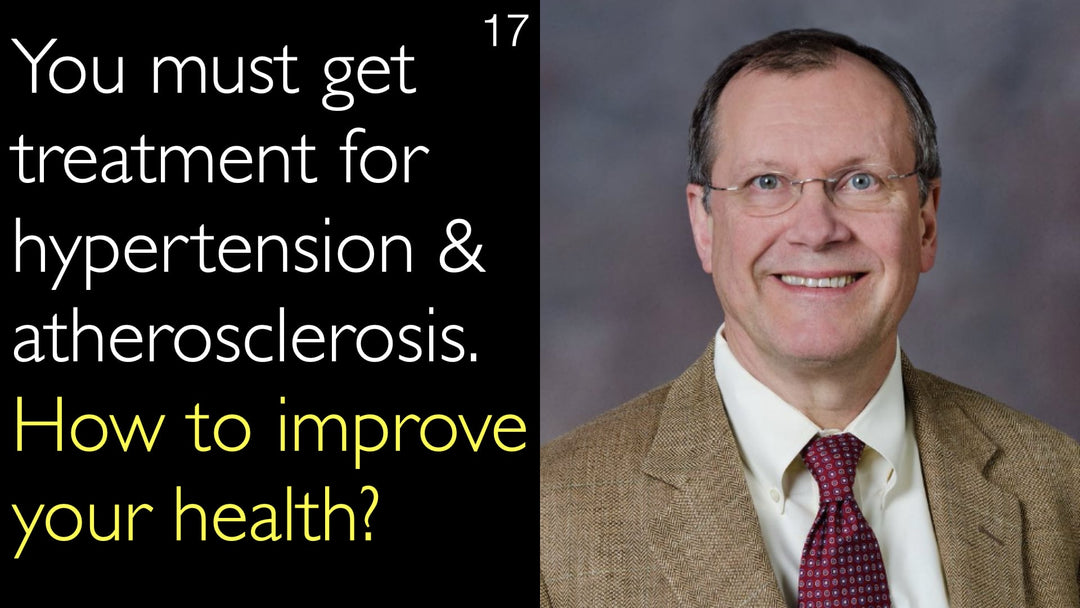Den ledande experten på sociala hälsodeterminanter, Dr. George Kaplan, förklarar hur sociala normer och samhällspress kan bekämpa fetmaepidemin genom att omforma livsmedelsmiljöer, portionsstorlekar och stadsdelsinfrastruktur. Han betonar att fetma är en komplex fråga som kräver interventioner på flera nivåer, snarare än mirakellösningar, och pekar på simuleringsdata som visar att rasbaserade skillnader i BMI skulle kunna elimineras inom 20 år genom riktade socioekonomiska förbättringar.
Hur sociala normer och samhällsförändringar kan vända fetmaepidemin
Hoppa till avsnitt
- Sociala normer och fetmaprevention
- Portionsstorlekar och matmiljö
- Arbetsliv och matvanor
- Matkvalitet och näring
- Komplexiteten hos fetmafaktorer
- Socioekonomiska lösningar på BMI-skillnader
- Långsiktigt samhällsperspektiv
Sociala normer och fetmaprevention
Enligt Dr. George Kaplan, MD, spelar sociala normer en avgörande roll för att forma hälsovanor och bekämpa fetma. Att förändra dessa normer är svårt men möjligt, vilket framgår av hur rökning i många samhällen har förvandlats från acceptabelt till oacceptabelt beteende. Dr. Kaplan påpekar att även om tobak kan vara starkt beroendeframkallande, kräver viktnedgång att man tar itu med djupt rotade sociala och miljömässiga faktorer.
Portionsstorlekar och matmiljö
Dr. George Kaplan, MD, pekar på portionsstorlek som en kritisk social norm som direkt påverkar fetmafrekvensen. Forskning visar att människor tenderar att äta en viss andel av det som serveras, oavsett om det är på stora eller små tallrikar. I en intervju med Dr. Anton Titov, MD framhölls att amerikanska portionsstorlekar är betydligt större än europeiska, vilket leder till högre kaloriintag. Restaurangportioner som är avsedda för flera personer uppmuntrar till överätning genom miljömässiga signaler snarare än hungerkänslor.
Arbetsliv och matvanor
Modern arbetslivsbalans och familjedynamik påverkar matvanor och fetmarisk avsevärt. Dr. George Kaplan, MD, förklarar att tidsbrist leder till att många äter ensamma eller väljer snabbmat på grund av brist på tid att laga mat. Bekvämligheten och låga priset på processade livsmedel skapar normer som prioriterar hastighet framför näring. Dessa beteenden etableras genom daglig upprepning och social acceptans av snabbmatkulturen.
Matkvalitet och näring
En annan strategi för fetmaprevention är att förskjuta sociala normer mot högre näringskvalitet. Dr. George Kaplan, MD, föreslår att en ökad tillgång till lokalt producerad, näringsrik mat istället för frysta eller förpackade alternativ skulle kunna påverka folkhälsan avsevärt. Samtalet med Dr. Anton Titov, MD betonade att insatser för matkvalitet måste adressera både tillgänglighet och social acceptans av hälsosammare alternativ.
Komplexiteten hos fetmafaktorer
Enligt dokumentation från Foresight Group i Storbritannien är fetma ett exceptionellt komplext tillstånd med hundratals bidragande faktorer. Deras kartläggning avslöjade påverkansfaktorer som sträcker sig från psykologiska och biologiska aspekter till livsmedelsproduktionssystem. Dr. Kaplan betonar att ingen enskild åtgärd—som att eliminera high fructose corn syrup eller rikta in sig på specifika makronäringsämnen—kommer att lösa fetmaepidemin ensam. Denna komplexitet kräver omfattande, mångfacetterade strategier.
Socioekonomiska lösningar på BMI-skillnader
Simuleringsmodeller visar stor potential att minska rasrelaterade skillnader i kroppsmassindex (BMI) genom socioekonomiska interventioner. Dr. George Kaplan, MD, rapporterar att BMI-skillnader mellan svarta och vita befolkningar skulle kunna minskas dramatiskt eller till och med elimineras inom 20 år—ungefär en generation. Nyckelåtgärder inkluderar förbättrad gångvänlighet i bostadsområden, ökad tillgång till hälsosamma matalternativ och förbättrad utbildningskvalitet. Dessa resultat understryker att samhällsfaktorer är viktigare än individuella kostvanor för att påverka folkhälsan.
Långsiktigt samhällsperspektiv
Fetmaepidemin har utvecklats under decennier och kommer att kräva ihållande, långsiktiga samhällsförändringar snarare än snabba lösningar. Dr. George Kaplan, MD, betonar att den största effekten kommer från att adressera grundläggande socioekonomiska faktorer snarare än att söka efter mirakelmedel eller diettrender. Som Dr. Anton Titov, MD diskuterade med Dr. George Kaplan, MD, bygger detta perspektiv på att miljömässig och social omstrukturering skapar grunden för varaktiga förändringar i hälsovanor på befolkningsnivå.
Fullständig transkript
Dr. Anton Titov, MD: Vad anser du är rollen för sociala påtryckningar för att påverka förändringar i hälsovanor i allmänhet och fetma i synnerhet? Och vad är det effektiva sättet att använda sociala påtryckningsfaktorer för att ändra allmänt beteende?
Dr. George Kaplan, MD: Sociala normer är exceptionellt viktiga, men de är också svåra att ändra. Vi såg det med rökning—det krävdes mycket för att göra rökning till oacceptabelt beteende. I området där jag bor i norra Kalifornien finns det fortfarande områden där det är normen.
Människor har hävdat att tobak är mer beroendeframkallande än heroin. Det kan vara fallet; jag vet inte om det är så eller inte, men det är verkligen oerhört beroendeframkallande. Och att gå ner i vikt är extremt svårt.
De sociala normer och påtryckningar vi måste arbeta med är de som har att göra med portionsstorlek. Att gå in på en restaurang och bli serverad mat för två personer—bevisen visar att människor tenderar att konsumera en viss procent av vad som sätts framför dem, oavsett om det är en stor eller liten tallrik. Om de sätter fram en stor tallrik, äter de mer.
Portioner i USA är så mycket större än i Europa. Det stämmer. Vi måste också tänka på hur arbetsliv och familjeliv leder till att äta ensam eller äta snabbmat för att man inte har tid att laga mat, eller för att det är billigt—hur det bidrar till fetma.
Vi måste tänka på normer som har att göra med kvaliteten på mat, att kanske ersätta lokalt producerad, näringsrik mat med fryst eller förpackad mat. Det finns en hel rad saker; fetma är oerhört komplext.
Foresight Group i Storbritannien gjorde en karta över alla faktorer som bidrar till fetma, från den psykologiska sidan till livsmedelsproduktionssidan, den biologiska sidan. Det finns hundratals faktorer som bidrar.
Det kommer inte att finnas någon magisk lösning. Vi kommer inte att kunna eliminera fetma, enligt min åsikt, genom att eliminera high fructose corn syrup eller genom att på något sätt ingripa mot kolhydrater eller det ena eller det andra. Jag tror inte att någon enskild sak kommer att göra det.
Dessa problem utvecklades under en lång period; de kommer att ta lång tid att minska. Vi visade i en simuleringsmodell som vi har att skillnaden i kroppsmassindex (BMI) mellan svarta och vita kunde minskas dramatiskt, kanske till och med elimineras på mindre än 20 år—en generation.
Genom att ingripa på gångvänligheten i de områden där människor bor, genom tillgängligheten av god mat, och genom att öka utbildningskvaliteten, i den simuleringsmodellen—vilket är en modell, inte en intervention—kunde vi eliminera BMI-skillnader mellan svarta och vita på 20 år.
Så det är ytterligare en understrykning av vikten av socioekonomiska faktorer snarare än att försöka hitta ett mirakelpiller eller en stor diet på individnivå. Det är de samhällsmässiga faktorerna som kommer att ha störst inverkan på så enorma problem.
Dr. Anton Titov, MD: Absolut. Tack så mycket för detta samtal.
Dr. George Kaplan, MD: Tack.








